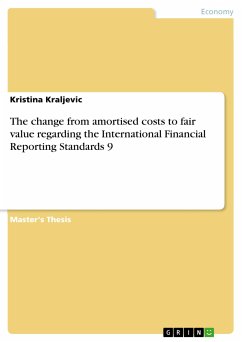Seminar paper from the year 2004 in the subject Business economics - Accounting and Taxes, grade: 1.7, University of Bayreuth (School of Law, Economics and Business Administration ), course: 'business taxation and auditing' , language: English, abstract: Huge changes arose in the world of economy during the last decade. Due to globalisation and competition for scarce capital1 a heightened discussion regarding different national accounting policies emerged. There has been an intensive controversy between continental-European and Anglo-American based accountancy. All companies listed on a stock exchange in the EU are obliged to present their group accounts in accordance with IAS/IFRS2 from 2005 on. One crucial aspect of IRFS focuses on the increasing tendency to recognise a fair value which implies a departure from historical cost-based financial statement to a rather market value-based one. Subsequently, this paper introduces and compares the current valuation bases of the German commercial/tax law and IRFS. Because of the increasing importance of IFRS the major point reflects this consideration. Finally, contrasts will be emphasised and opportunities for a complete takeover of an advanced fair value accounting to German accountancy will be examined. For this reason a reference to the general objectives and principles both of the accountancies is inevitable and will be introduced in either case.
Bitte wählen Sie Ihr Anliegen aus.
Rechnungen
Retourenschein anfordern
Bestellstatus
Storno









